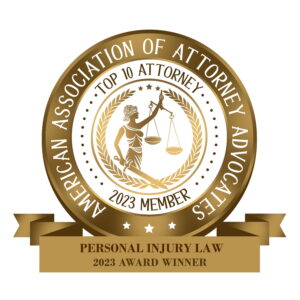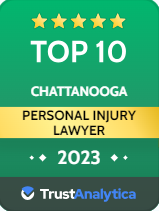In Part I of How We Maximize Our Clients’ Soft Tissue Injuries Damage Case – Part I blog post series, I talked about what a soft tissue injury is and how we take steps to maximize your personal injury damage case at the very first meeting with our client. This Part is going to talk about our follow-up.
FOLLOW-UP ON THE INITIAL INTERVIEW
Many clients make errors when they relate the details of their injury, lawsuit and claims history. This is not surprising. We’re all human and we all have faulty memories. Some clients, overwhelmed by the situation, will “fib”—not because they are bad or dishonest but because they are in a stressful situation and they want to put their best foot forward. Sometimes, we need to protect our clients from themselves; so, this is how we do it.
MEDICAL RECORDS
We order all medical records, not just those generated as a result of the Tennessee or Georgia car wreck injury. For example, a woman’s obstetric records may include complaints of back pain. A person may have been in a rear-end collision 20 years earlier and complained of neck pain. Why do we get these old records? Because failure to obtain these records and relying the client’s memory before he or she gives sworn testimony in answers to interrogatories or a deposition can result in errors—-errors that will affect the settlement and trial value of a case.
When we get the past medical records, we always review them. If we find anything in the records that is inconsistent with what the client told us, we ask the client about it. If it is discovered information that might impact the value of the case, we prepare the client to reveal the information in the right way if the insurance company’s lawyer asks about the harmful medical information. We can almost always lessen the impact of the harmful past medical history if we know about it ahead of time and have time to prepare for it.
LOST WAGES
We always want to confirm without client’s employer the days our client missed from work and lost wages. We always make sure the employer or HR department signs a wage statement to show the insurance company that we verified the information.
TAX RETURNS
If it appears the case is going to trial, we always want to obtain copies of tax returns—either from our client or the Internal Revenue Service. If our client did not file tax returns or significantly under-reported her income (e.g. waiters, waitresses, and others in “cash” businesses}, we have several options:
1) Help the client file amended returns;
2) Drop any claim for loss of income and argue that the law excuses production of the returns or W-2 forms because they are “not reasonably calculated to lead to the discovery of admissible evidence” and then ask the court to prohibit the defense from even questioning our client about income tax at trial;
3) Settle the claim quickly, (which often means for less than the claim is worth—but this is better than a jury thinking our client cheats at taxes)’
4) Seek damages for loss of income and hope the defense lawyer will not ask the right question or that the jury will give the plaintiff a break (very unlikely).
PRIOR CLAIMS
We never want an inadvertent statement of our client to give the defense the opportunity to call her a liar in front of the jury. So, if our client ever testified about a previous injury, in a prior claim, we want our client to remember that testimony accurately. To help our client do this, we try to get copies of deposition or trial testimony of our client.
We will soon post to HOW WE MAXIMIZE OUR CLIENTS’ SOFT TISSUE DAMAGE CASE – PART III for more on what we can do to maximize the recovery in these difficult cases. If you have a Tennessee or Georgia car wreck case that resulted in soft tissue injuries and it wasn’t your fault, and you want to know more about how to maximize your recovery, give Dennis and King a call at 423-892-5533 or fill out one of contact forms. Our award-winning attorneys would love to talk to you. We are happy to help even if you don’t hire us.
 500+ five star reviews
500+ five star reviews









